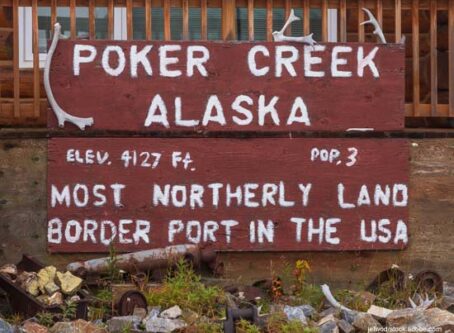CARB hits eight brokers and carriers with $130,000 in penalties
Eight companies have been hit with thousands of dollars in penalties by the California Air Resources Board for violating CARB’s Truck and Bus Regulation.
According to a news release, CARB settled eight diesel cases totaling more than $130,000 in the Imperial Valley. The settlements derive from investigations conducted by California Environmental Protection Agency’s Environmental Justice Task Force.
The Truck and Bus Regulation requires heavy-duty diesel vehicles that operate in California to reduce toxic air contaminant emissions from their exhaust. By 2023, nearly all trucks and buses will be required to have 2010 or newer model year engines to reduce particulate matter and oxides of nitrogen emissions.
In August, CARB passed a new regulation that further tightens those restrictions.
A&U Mex-Export – $40,750
Calexico, Calif.-based A&U failed to verify that each hired or dispatched vehicle was in compliance with CARB’s Truck and Bus Regulation. The company also failed to maintain records. Half of the settlement will go toward a Supplemental Environmental Project to install and maintain high-performance air filtration systems in Calexico schools. A&U also agreed to not operate or direct the operation of any vehicle subject to the Truck and Bus Regulation without obtaining documentation demonstrating that each vehicle hired or dispatched is in compliance prior to hire.
San Luis International Freight Services – $30,000
Based in San Luis, Ariz., San Luis failed to bring 15 of its on-road diesel-fueled vehicles into compliance with CARB’s Particulate Matter Best Available Control Technology requirements of the Engine Model Year Compliance Schedule for diesel vehicles with a gross vehicle weight rating of greater than 26,000 pounds. This caused the release of excess emissions. San Luis also is required to modify their diesel-fueled vehicles to be in full compliance within specified timeframes.
Cargo Northwest Forwarders – $20,000
CARB found that Cargo Northwest, based in San Diego, failed to bring one of their on-road diesel fueled vehicles into compliance with the applicable in-use performance standards. The $20,000 penalty will go to the Air Pollution Control Fund, which provides funding for projects and research to improve California’s air quality.
Vilore Foods Co. – $16,250
Laredo, Texas-based Vilore Foods failed to verify that each vehicle was in compliance with the Truck and Bus Regulation. Also, the company failed to comply with recordkeeping requirements. Six fleets were found to be noncompliant. Vilore’s penalty will also go to CARB’s Air Pollution Control Fund.
Richard L. Jones Calexico – $7,000
Contrary to its name, RL Jones is out of San Diego. According to CARB, the company’s violations were similar to Vilore’s. In this case, only one vehicle was out of compliance. CARB did not indicate with the penalty funds will be directed.
Imperial Valley Foods – $6,500
Also based in Calexico, Imperial Valley Foods failed to bring three of its transport refrigeration units into compliance with CARB’s Airborne Toxic Control Measure performance requirements. It also failed to verify each vehicle was in compliance. The penalty amount will go to the Air Pollution Control Fund.
Baja Freight Forwarders – $5,250
Baja Freight Forwarders, which has offices in San Diego and Calexico, failed to bring one fleet into compliance with CARB rules. No further details were provided.
Casas International Brokerage – $5,000
Another Calexico-based company, Casas International also failed to verify compliance for every vehicle and violated recordkeeping requirements. The company agreed to not operate any vehicle without obtaining documentation demonstrating that each vehicle is in compliance.
The above settlements were reached in a period spanning from May 2019 to August. In the spring of 2018, CARB met with local residents to hear about their concerns related to air pollution. Residents complained about diesel traffic and compliance associated with cold storage facilities and drayage at the Calexico Port of Entry.
CARB then targeted 35 facilities. Of those facilities, eight investigations were launched on the above brokers, in-state carriers, and persons hiring vehicles. According to CARB, all of the companies now comply with clean air regulations.









